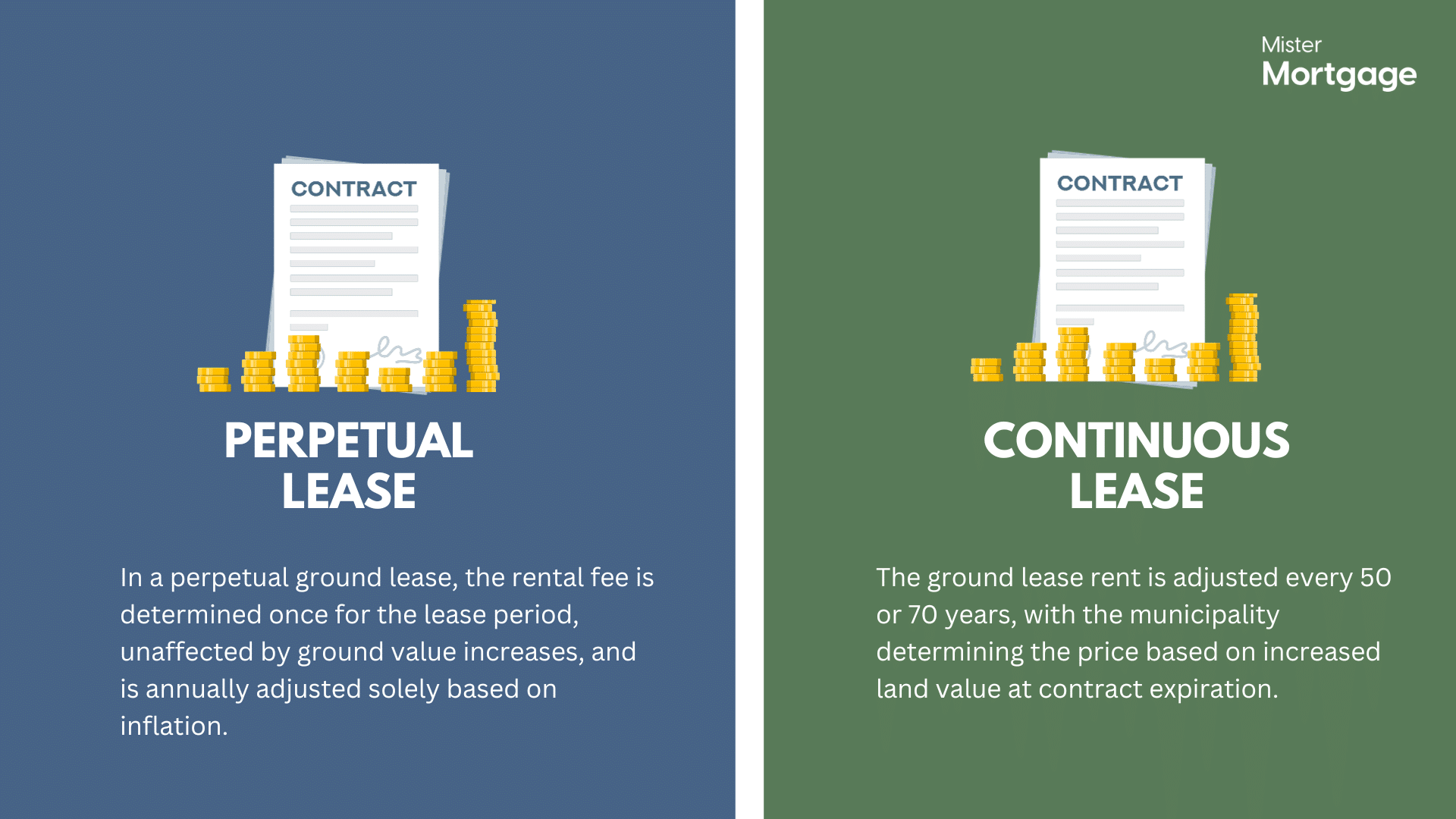
How does the ground lease work in the Netherlands?
A lease agreement between two parties gives a right to use the land on which your home is built. An annual fee for a ground lease is paid to a city or private landlord. The tenant has the right to use and develop the land during the lease period, but the landlord retains ownership of the land. Ground leases are typically used in situations where the landlord wants to retain ownership of the land for long-term investment purposes but doesn't want to manage the property actively.
How is a ground lease calculated?
The value of the land determines the amount or rent paid to the landlord. The lease price ranges across municipalities.
Contract types of a ground lease in the Netherlands
The terms of a ground lease in the Netherlands are typically spelt out in a written contract, which can include details such as the duration of the lease, the amount of rent to be paid, and any restrictions on the use of the land. The lease may also include provisions for the tenant to make payments to the landlord to compensate for increases in the value of the land over time.
-
A continuous ground lease is adjusted every 50 or 70 years. At the end of the contract, the municipality determines the rental price based on the ground’s value. If the value of the land increases, the rent tends to grow, too.
*Rent is paid for a set time with the possibility of extension every 50 or 70 years.
*Rent for the new period is calculated based on the ground value at that time -
A perpetual ground lease is a fixed contract, which means that a rental fee is calculated only once during the lease period. If the ground ease increases, it will not affect the rental price. There are no significant changes in rent during the lease period. The amount is only adjusted yearly based on inflation.


How to switch ground lease in the Netherlands?
A leaseholder has a right to change the lease agreement from continuous ground to perpetual ground. The municipality indicates switching costs. Three different types of payments for ground lease:
1. An annual fee which means the fixed ground fee is paid yearly. The yearly fee is adjusted annually based on inflation.
2. Buy off after a perpetual period which means you buy a perpetual ground lease in one go.
3. Buy off current and perpetual leasehold, which means you pay an annual fee and the continuous period in one go.
Schedule a free call with us




